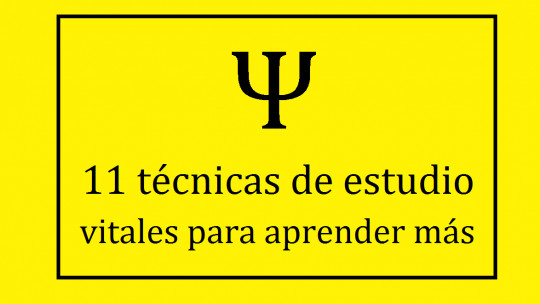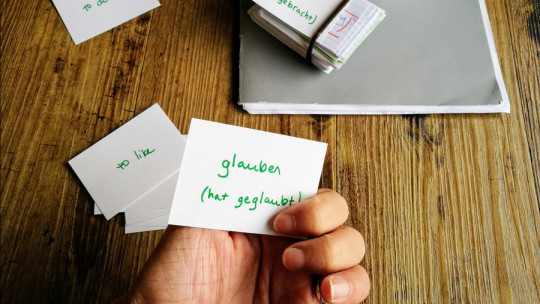
Surely it has happened to all of you that during exam time, and after several hours studying, your brain says: “Enough!”. You have reached your limit, and no matter how much you continue studying, you are not going to memorize or learn anything. Therefore, It’s time to take a break
We tend to have the mistaken belief that by spending several hours studying, without resting, we will learn much more. Well, you can learn a lot and study less: The key is to use time to your advantage and have the different tools that I will provide you below This will help you be more effective in your study.
Expert advice to study less and learn more
I’m sure I’m not the only one who has found myself in the above situation and who, to maximize the results of their study, has searched for a video on YouTube to learn better and in less time. Well, I want to tell you that doing a little searching on social media, I came across a video that I found very interesting, but that, unfortunately, was too long (at least that’s what I thought when I saw it).
The video (which I leave you at the end of the text) is very productive. In the recording, a psychology professor from Pierce College in Los Angeles (United States), Dr. Marty Lobdell, appears, who for more than 50 minutes performs a conference in which he gives several tips to study less and be more productive in the study But so that you do not have to view the entire audiovisual content, and for those of you who do not speak English (which I know is difficult for many of you), I have taken the trouble to write this article and extract the most important ideas, which I am sure will be useful to you. useful.
7 tips to be more productive in the study
When learning new material, it can be overwhelming just thinking about everything we have to digest (mentally speaking) and the time we have to spend bending over backwards. To avoid unproductive hours, don’t miss the following lines
1. Study in fragmented sessions
Studying in fragmented sessions means that you must study in blocks of time. If, for example, you study for 3 hours, you will be more productive if you stop every “x” time. It is better to study 2 hours with breaks than 3 hours straight without stopping. Professor Lobdell explains that a recent study concluded that The average time that most people need before starting to have learning problems is about 25-30 minutes Therefore, to study better you have to do short study sessions and then rest for 5 minutes.
When taking a break it is necessary to do some fun activity or something away from studying. In addition, the expert also recommends giving yourself a reward once the daily study session is over, for example, going to the movies. Positive reinforcement increases the study habit.
2. Have a specific corner designated for study
Having a specific area for study refers to having a place where you only study. That is, you don’t eat, you don’t watch television, you don’t play the console, etc. It also means that you study there, not in bed or on the couch (except in the library). This It is positive because it helps you be more focused and also allows you to get out of that study space during the break It is about having an ideal place and environment to be more productive studying.
3. Study actively and know the difference between recognition and memory
Dr. Lobdell explains the difference between recognition and memory. Recognition requires a stimulus that elicits the response, and that stimulus may not be present in an exam. Recall has to do with learning concepts rather than facts. A piece of information can be the word arm, however, a concept can be the fact of knowing how the arm works, for example, mechanically. Studying actively allows you to memorize concepts and, therefore, promotes memory which will always be better than learning data.
4. Take good notes
Find a good way to take notes so that they are useful to you, and review them from time to time If when you finish class you realize that there is something in the notes you have taken that you don’t fully understand, ask a classmate (and even the professor) about the topic. Having up-to-date notes greatly facilitates subsequent study and understanding of what you want to learn, in addition to reducing study time.
5. Be prepared to teach what you have learned
You must be prepared to teach what you have learned to another person, because This shows whether or not you understand what you have studied You can write a summary to see if you understood it or pretend to explain it to someone. This will facilitate remembering and help you detect the aspects that you do not master.
6. Read the texts effectively
The teacher advises that, to read the texts effectively, we use the SQ3R method, which allows you to retain information more efficiently But what is SQ3R method? Well, this method is based on the following sections.
7. Use mnemonics
Many times we know the concept perfectly but we have a hard time remembering the data. For example, We may know the concept of afferent and efferent neuron, but we get confused when remembering which is which The teacher suggests the use of mnemics, which are techniques to promote learning and memorization. One of the techniques he suggests is the use of acronyms or phrases to remember data. For example, you can use “PaBlo CUIDA a CRistina A Las CiNco” to remember the metal cations that are Amphoteric (Lead, Copper, Chromium, Aluminum, Zinc).
Below you can watch the video of Dr. Marty Lobdell:








